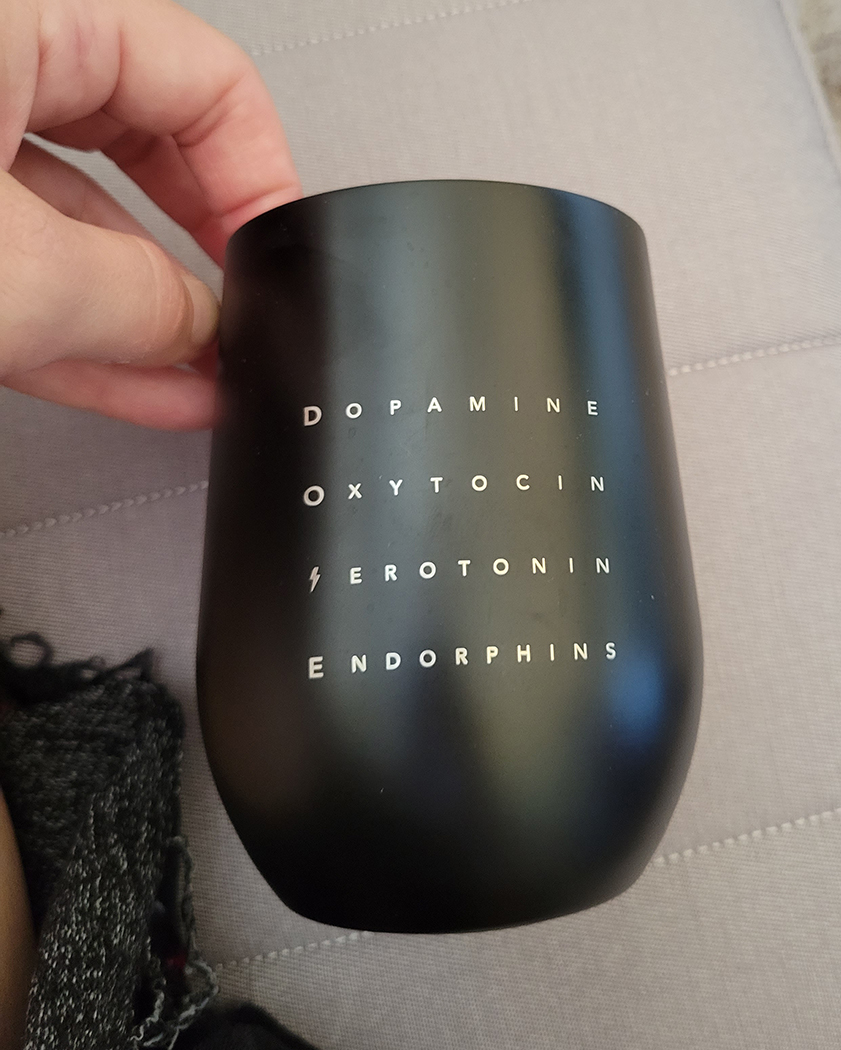Mushroom Coffee
I recently became aware of the extraordinary benefits of certain types of mushrooms. Have y’all seen Fantastic Fungi on Netflix? So, I was particularly excited when I was recently assigned a freelance gig tasting and comparing two different mushroom coffees: MUD/WTR and Everyday Dose. Mushroom coffee is something I’ve been curious about. Like, how good could it actually taste? Does it even taste like coffee? Does it still have caffeine? These were all questions I needed to find the answers to.
*This post contains affiliate links for which I may receive a small commission should a purchase result from a click. This, in no way, affects you or your cost.
EVERYDAY DOSE MUSHROOM COFFEE
I purchased a “starter kit” from Everyday Dose‘s website. This mushroom coffee came with a cute little stemless, stainless steel cup that resembled a wine glass and its own stainless steel serving spoon. The coffee itself boasted two different adaptogens (Lion’s Mane and Chaga), which, if you’re unfamiliar with them, are natural chemicals thought to aid the body’s adaptation to stress and normalize biological systems. AKA mushrooms.

LION’S MANE MUSHROOMS
Lion’s mane mushrooms are huge, white, shaggy mushrooms that grow in the shape of a lion’s mane. They include bioactive chemicals that benefit the body’s organs, including the brain, heart, and gut. So it’s no wonder Asian countries use them for culinary and medicinal purposes. These mushrooms are powerful. Among its many benefits, lion’s mane helps manage diabetes symptoms and relieve depression and anxiety.
CHAGA MUSHROOMS
Chaga mushrooms have a rough texture and a rather crusty appearance. The interior is a beautiful amber or rusty yellow-brown color, with a black exterior. High in antioxidants, chaga mushrooms are known to lower bad cholesterol, support the immune system, and even slow down or prevent cancer.
Everyday Dose mushroom coffee tastes like coffee, y’all. Whether served over ice or hot, with cream or not, this mushroom coffee packs all the benefits of its adaptogens into a morning cup of Joe that rivals Starbucks’ brew. In addition, I found out that these mushroom coffees have coffee in them. It’s just less caffeine than what you typically find, which is why many of the brands making mushroom coffee boast “more energy,” “better focus,” and “no midday crashes.”
Unfortunately, after further investigation, I discovered that Everyday Dose mushroom coffee also puts bovine collagen into its powder. In other words, boiling cow bones produced this collagen. I say ‘unfortunately’ because I don’t eat land animals. Nevertheless, collagen can be an attractive feature for those looking for an alternative coffee and something good for healthier skin and bones.
MUD/WTR MUSHROOM COFFEE
I made an hour’s drive to Riverside, California, to the eclectic and adorable Mundial. I made this drive on a Sunday morning because it was the only relatively nearby place that served MUD/WTR. Again, I tried it hot and cold. Both were absolutely delicious. The only drawback was that MUD/WTR mushroom coffee tasted more like Chai tea than coffee.
Additionally, MUD/WTR contains four different types of mushrooms: Lion’s Mane and Chaga like Everday Dose, Reishi, and Cordyceps. Below, I’ve shared a brief overview of these additional adaptogens.
REISHI MUSHROOMS
Deemed the “King of Mushrooms,” reishi mushrooms are known for regenerating cells, strengthening the immune system, and improving mood. Fan-shaped and ranging in color from orange to reddish-brown, these fungi are rare in nature and were once reserved for royalty when they were initially utilized in Asian cultures thousands of years ago. Today, they’re commercially grown and sold in various forms, including tea, tinctures, capsules, and, you guessed it, coffee!
CORDYCEPS MUSHROOMS
Cordyceps are parasitic fungi that feed on insect larvae. When these fungi attack their host, they replace tissue and produce long, slender stems outside the body. For generations, the remains of the bug and fungi have been collected by hand, dried, and used in Traditional Chinese Medicine. This mushroom is known to boost exercise performance and contain anti-aging properties, among other benefits.
MUSHROOM COFFEE MIGRATION
I couldn’t have Everyday Dose, and MUD/WTR didn’t taste enough like coffee for me to consider it a viable alternative. So, I continued my migration through mushroom coffee. That’s when I discovered Four Sigmatic. Four Sigmatic makes mushroom coffee and has a line of other products, like plant-based protein powder, perfect for my morning smoothies! And if you’re a coffee pod lover, they have those, too!
Four Sigmatic’s mushroom coffee tastes just like coffee, too! It contains coffee farmed at 5,500 feet above sea level in Marcala, La Paz, Honduras. I have yet to try it hot, though. I like my coffee cold, brewed the night before in a French press, and left to chill overnight in the refrigerator. Four Sigmatic’s product line is so extensive and diverse that I find it the perfect segue into the mushroom coffee world. It’s also a great introduction to adaptogens and their benefits.
With so many mushroom coffee brands out there, it’s worth taking your own journey. Have you tried a mushroom coffee not mentioned here? I’d love to hear about it.
As always, it’s important to consult with your physician before implementing new ingredients into your diet.
Cheers!

Four Sigmatic Mushroom Coffee | The Road Linds Travels
November 12, 2023 at 2:39 PM[…] like the heavenly aroma of the morning beverage we’re all so used to. I first became aware of mushroom coffee in early 2022. I had the pleasure of trying a few different brands and blends, eventually landing […]